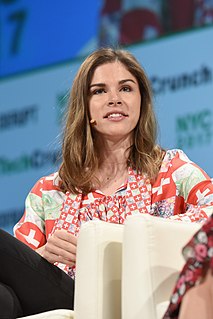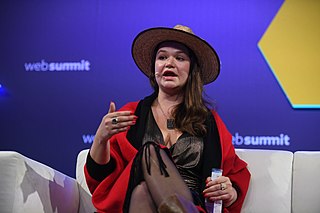A Quote by Emily Weiss
We wanted Glossier to have an excellent customer experience and reach as many of you as possible from day one, so we went with venture - the stuff fast-growth, tech-enabled companies like Facebook, Amazon, and Apple are made of.
Related Quotes
Fifty years ago, the way that we consumed food was revolutionized. We began eating processed foods, and it seemed amazing. And then we woke up many decades later, and we realized that food was engineered to make us fat. And I think that such companies as Google, Facebook, Amazon, Apple are doing the same thing with the stuff that we ingest through our brains. They're attempting to addict us, and they're addicting us on the basis of data.
We're a community of a billion-plus people, and the best-selling phones - apart from the iPhone - can sell 10, 20 million. If we did build a phone, we'd only reach 1 or 2 percent of our users. That doesn't do anything awesome for us. We wanted to turn as many phones as possible into 'Facebook phones.' That's what Facebook Home is.
There's been a lot companies that have shown "zero to one" kind of growth in the computer, internet software age. Facebook and Google are zero to one companies. Apple's iPhone was the first smartphone that really works, and of course, then you scale it horizontally, but the vertical component was really critical. Space X would also be one.
Most of the tech CEOs I know used to think that moving to the Midwest or the South was beneath us, a good tactic for the Boeings of the world who don't need the kind of rare skills we depend on, who have to grub for profits when we reach for growth. But if Amazon can't afford to keep growing in Seattle, who can?
Google, Facebook, Amazon, Apple are among the most powerful monopolies in the history of humanity. So, the problem is, is that they have tremendous ability to shape the way that we think, the way that we filter the world, the way that we absorb culture. And if they were just companies, maybe we shouldn't be so concerned about them, but they play an incredibly vital role in the health of our democracy.

































